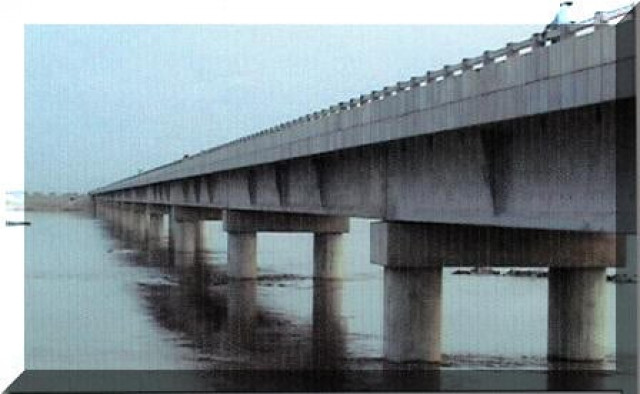Karachi:
During a session held at the Karachi Press Club under the theme “obstructions and risks for Karachi’s natural waterways”, environmental experts, law professionals, urban planners, writers and civil society representatives stressed the urgent need to protect the city’s natural drainage channels and ecological balance.
The Gathering, Waiting by Legal Expert Abeerah Ashfaq, Karachi Press Club Secretary Sohail AFZAL Khan, Kazim Hussain Mahesar, Hafeez Baloch of the indigenous alliance, Urban Planner Muhammad Tohid, Professor Dr Abubakar Baloch, Environmentalist Darya Khan, Historian and Writer Azeem Dehqan, and Many Others, Highlighted the Vital Role of Les Rivières Malir and Lyari, as well as their rivers and connected tributaries, maintaining the ecological balance of Karachi and providing drainage of natural floods. Participants stressed that the survival of these waterways and their ecosystems was essential for city safety and long -term sustainability.
The speakers demanded that the Malir and Lyari rivers be officially recognized as “lively waterways” and that all obstructions, encroachments and illegal constructions along their lessons be deleted. They also pointed out that any future construction on these natural navigable waterways should be completely prohibited to preserve the ecological resilience of the city.
A resolution was adopted unanimously during the session. He asked that the peri -urban areas of Karachi, in particular Malir, Gadap, Moedan and Kathore, be declared permanent green areas and rural areas. This, according to resolution, would protect agricultural land and secular consumption villages by rapidly expanding housing regimes and allow agricultural land to maintain their vital importance. The resolution also required a strict application of the existing ban on the extraction of the sand and the gravel of the Malir river and its tributaries, warning that such activities compromise the structure of the navigable roads and disturb natural flows.
Participants urged the government to classify the agricultural land of the District of Malir permanently as a green area in the city’s master plan. They also called for the restoration of rented land to local farmers or to their property rights, while providing subsidies to farmers to strengthen local food production and maintain ecological balance. Concerns have also been raised concerning the destruction of mangroves forests and other coastal ecological assets, participants requiring immediate stop to deforestation, encroachments and the degradation of coastal resources. Efficient programs should rather be launched to restore and widen the coverage of the mangroves, they said.
The speakers have stressed that in the face of climate change, the rapid growth of the population and the unexpected urban sprawl, Karachi must urgently adopt modern and sustainable global planning standards. This includes the application of safe accommodation and construction regulations as well as the formulation of a robust disasters management plan. They also insisted on a total ban on the spill of toxic industrial and chemical waste in the Malir river or in any natural navigable route. The industries, they have said, must be forced to have their waste through modern waste management systems, and uncontrolled extraction of groundwater for industrial and commercial use must be prohibited to protect the city’s water reserves.
The resolution also called immediate and effective legislation to protect natural resources, rivers and agricultural land of Karachi. Participants also asked that the construction of the more in -depth Bhutto motorway is subject to a impartial environmental assessment. Any land exposed by the extension of the highway near the Malir river, it proposed, must be used for the development of forests in order to restore ecological balance.




